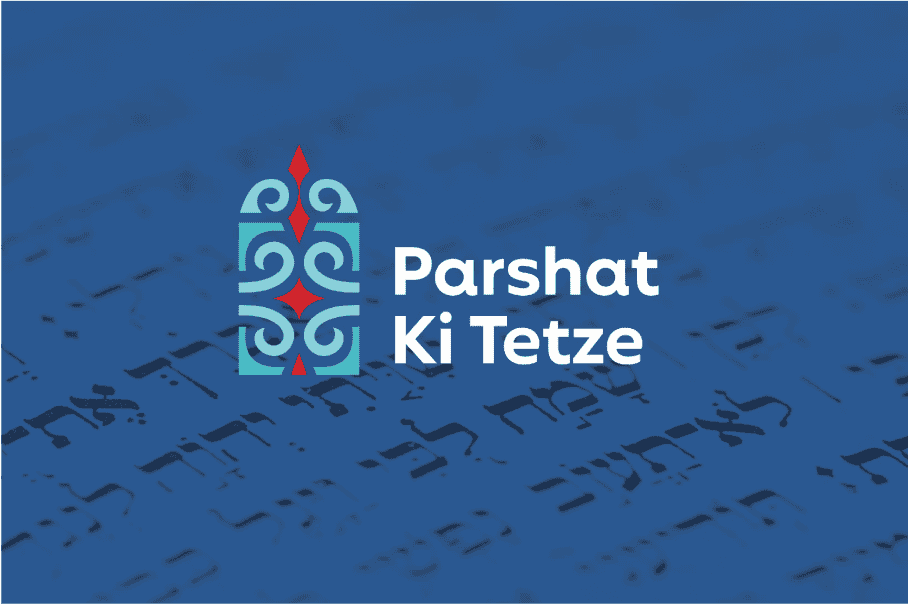
Shabbat Shalom everyone!
Our parasha this week is Parashat Ki Teitzei, a parasha full of many different mitzvot.
In this parasha there are more than 70 mitzvot, dealing with a wide range of topics, from laws of war and marriage, through social mitzvot like Hashavat Aveidah (returning a lost item) and Shiluach Hakein (the prohibition to take the mother bird together with the chicks), and up to mitzvot of charity and justice.
One of the central mitzvot in this parasha is “lo tireh chamor achicha o shoro noflim baderech hakem takim imo” (You shall not see your brother’s donkey or his ox fallen down by the way, and hide yourself from them; you shall surely help him lift them up again).
In this Mitzvah we learn two important points. First, the Mitzvah of Tzaar Baalei Chayim (Talmud Bavli, Bava Metzia 32b), that when we see an animal suffering and unable to help itself, we are obligated to assist it with unloading its burden and other needs. Second, the Torah teaches us that we must help every person, even someone we do not like, when his animal collapses under a heavy load. We are required to put aside personal hostility and help him with the burden.
This mitzvah teaches us a deep and important foundation: the obligation to help others goes beyond personal impressions and negative feelings. The Torah does not ignore the fact that we may feel hatred or animosity toward another person, but it guides us to rise above these feelings and place compassion and helping others above all. It is a call to rise above selfishness, anger, and rejection of others.
This mitzvah is a cornerstone of proper social relationships. It reminds us that even in the most complex relationships, compassion and assistance are the path to building a better world.
May we always see the needs of others and act with compassion and a desire to help, even when it is difficult. May we merit to build a society where mutual help is stronger than any disagreement.
Shabbat Shalom Umevorach,
Rabbi Eliahu Barzilai ❤️
שבת שלום לכולם!
פרשת השבוע שלנו היא פרשת כי תצא, פרשה עשירה במצוות שונות ומגוונות.
בפרשה זו ישנן יותר מ-70 מצוות, העוסקות במגוון רחב של נושאים, החל מדיני מלחמה ונישואין, דרך מצוות חברתיות כמו “השבת אבידה” ו”שילוח הקן” (איסור לקחת את האם והגוזלים יחד), וכלה במצוות צדקה ומשפט.
אחת המצוות הבולטות בפרשה היא מצוות “לא תראה חמור אחיך או שורו נופלים בדרך הקם תקים עימו”. במצווה זו, נלמד שתי נקודות חשובות, ראשית את מצוות צער בעלי חיים, (תלמוד בבלי בבא מציעה לב עמוד ב) שכאשר נראה בהמה סובלת שאין ביכולתה לעזור לעצמה מוטל עלינו לסייע לה בפריקת המשא ושאר צרכיה, ודבר נוסף למדה אותנו התורה שאנו צריכים לעזור לכל אדם גם אם אנחנו לא אוהבים אותו, כאשר בהמתו קורסת תחת משא כבד. אנחנו נדרשים לנטוש את האיבה האישית ולסייע לו בפריקת המשא.
מצווה זו מלמדת אותנו יסוד חשוב ועמוק: החובה לעזור לזולת גוברת על כל רשמים אישיים ורגשות שליליים. התורה אינה מתעלמת מהעובדה שייתכן שנרגיש שנאה או איבה כלפי אדם אחר, אך היא מנחה אותנו להתגבר על רגשות אלו ולהעמיד את ערך החמלה והעזרה מעל הכול. זוהי קריאה להתעלות מעל אנוכיות, כעס, ודחיית האחר.
מצווה זו מהווה אבן יסוד ליחסי חברה מתוקנים, ומזכירה לנו שגם במערכות היחסים המורכבות ביותר, העזרה והחמלה הן הדרך לבניית עולם טוב יותר.
שנזכה תמיד לראות את הצורך של הזולת, ולפעול מתוך חמלה ורצון לעזור, גם כשזה קשה. מי ייתן ונזכה לבנות חברה שבה העזרה ההדדית גוברת על כל מחלוקת.
שבת שלום ומבורך,
הרב אליהו ברזילי ❤️